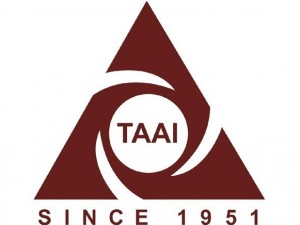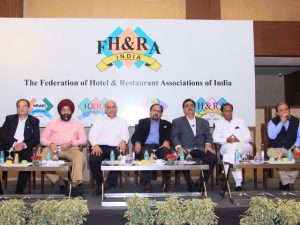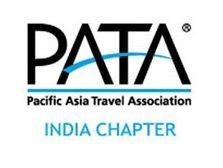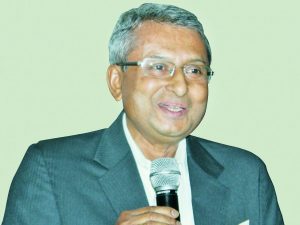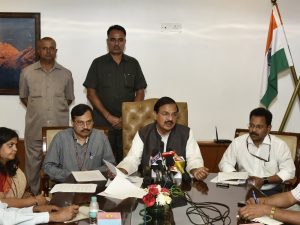TAAI Office bearers were recently invited to visit Kunming, Yunnan province, in China and had meetings with top Chinese government officials. “Yunnan province is an excellent location to have TAAI Convention. The Managing Committee will be meeting soon to discuss various offers available with TAAI and decide on the next convention venue soon. The Managing Committee is keen to announce the Convention destination during May/June 2017. The Visit to Kunming yielded several surprises with the outstanding location that Kunming is and with the top quality venues,” said Bettaiah Lokesh, Hon. Secretary General, TAAI, in an official statement. The TAAI Managing Committee had its 14th Managing Committee meeting on board the Royal Caribbean vessel, Mariner of the Seas. The Managing Committee reviewed the approval of TAAI’s application to Income Tax Authorities to grant Section 80G.”The Managing Committee committed will go all out to offer scholarships to meritorious students who are pursuing their education in Travel; Tourism & Hospitality Industry. TAAI’s 80G will also support CSR (Corporate Social Responsibility) participation. Several Members of the Managing Committee offered their contributions to commence this most important task of offering scholarships,” Bettaiah said.
Read More »OTOAI Convention in Ras Al Khaimah from Sep 12-14
The Outbound Tour Operators Association of India (OTOAI) will be organising its 2017 Convention in Ras Al Khaimah in September. Guldeep Singh Sahni, President, OTOAI, and Haitham Mattar, CEO, Ras Al Khaimah Tourism Development, signed a MOU for the same at the Ras Al Khaimah Roadshow in Delhi. Sahni said, “We are going to have our convention most probably from September 12-14 in Ras Al Khaimah. The dates are tentative and will be finalised soon. We will be coming out with more details about the convention very soon. Our intention is to introduce new markets to the tour operators so that they have another destination in their kitty, which will add value to the already existing markets that they sell. If one looks at the numbers, there is a big gap between Dubai and Ras Al Khaimah, and we are looking at utilising that for the benefit of the tour operators so that they can extend their tours to this destination, with an added cost.”
Read More »Liquor ban: FHRAI to seek legal redressal
The Federation of Hotel & Restaurant Associations of India (FHRAI) is exploring legal remedies with regards to the recent ban on sale of liquor. Speaking at the occasion, Dilip C. Datwani, Vice President, FHRAI, said “Rs. 200,000 crores loss to the exchequer and closure of more than 1 lakh establishments is not a small thing. We would not have minded being sacrificed if the ban were to yield results. But reality is that all the job losses and other damages would be wasted. The object sought would not be achieved”. “Total consolidated loss to both States and to the industry will be around Rs. 220,000 crores. The entire MICE industry including weddings, corporate events will be negatively affected,” said Garish Oberoi, VP, FHRAI. “There has been an unprecedented blanket ban on all national highways across the country without seeing the practical aspect of the topography & terrain of the cities, in the process having affected hotels and restaurants, who have invested crores of Rupees towards the development of the tourism industry in the country. For example, Darjeeling, which falls on NH 55, has hotels stretched over 77 kms from the very base of the town of Siliguri that are directly affected,” further continued T. S. Walia, Vice Presidents, FHRAI. ‘The judgement has effected those establishments that operated legally and we are not takeaways and serve for consumption in premises only. Many entrepreneurs who have taken loans will be placed at a disadvantage. It will make their properties non preforming further ‘continued S. M. Shervani, EC Member, FHRAI.
Read More »End drunk driving, not hotels: HRAWI campaigns against liqour ban
Hotel and Restaurant Association of Western India (HRAWI), the apex body of restaurateurs and hoteliers of Western India, has initiated a full-fledged social media campaign on the recent issue of liquor ban. “Through the social media we will convey a few facts that, in normal times, would have been apparent. In the current state, unfortunately, facts are obscured by surround sound. The facts to be considered are alcoholism is a disease and a social evil; drunken driving is a crime; and, hotels and restaurants serve alcohol. What is of significance is that these facts are not correlated. Any arrow of continuity that may exist is forced. The compulsive alcoholic will find ways and means for consuming alcohol and he will continue to drive after drinking. Just as locking up girls at home is not a solution for preventing rapes, banning hotels from serving liquor cannot be a solution for ending the menace of drunk driving. Drunk driving is a crime, and it should be treated as one,” says Dilip Datwani, President, HRAWI. HRAWI will run a series of hashtags on Facebook that will try and explain some of the common misconceptions. “One million jobs, Rs. 200,000 crores loss to the exchequer, possible closure of 15,000 establishments is not a small thing. It is a huge social cost to pay. And we would not have minded being sacrificed if the ban were to yield any results. But reality is that all the job losses and other damages would be wasted. Statistics prove that there is a correlation between drunk driving and enforcement; and not between drunk driving and number of restaurants and bars. If true, there would be no drunk driving …
Read More »PATA India training programme for member on May 5
PATA India has announced a training programme for its members and their employees on May 5, 2017. The programme is titled “Win-Win Negotiations” and is a full day training program. This training program will be conducted by Roshan Suhail, an accomplished Trainer, who had the honour of working with leading organisations like ONGC, NTPC, BHEL, Dhanuka, Shriram Group, UFLEX, YKK, Ashok Leyland, INTEX, HERO Cycles, iEnergizer, Shree Cements, Reliance Securities, and many more. Suhail has also conducted programmes for Govt. organisations and PSUs like Air India, Engineers India Ltd., FIEO, EPCH etc.
Read More »IATO opposes transport tax in Haryana
Pronab Sarkar, President, IATO, has said that the members of IATO are unhappy with the transport tax hike by the Transport Department of Haryana Government in the state. Addressing the monthly luncheon meeting of IATO, he said, “The transport tax in Haryana has been increased by 1700% from April 1, 2017. He said that while the government has increased this tax after four years, but such a steep hike is unacceptable. We will be meeting the Haryana Chief Minister as well as the Union Finance Minister to request them to implement any increase gradually.” Starting April 1, commercial vehicles entering Haryana would have to pay Rs. 3000.
Read More »Jobs at risk as India’s alcohol sale ban harms tourism: WTTC
The World Travel & Tourism Council (WTTC) has urged the Indian government to co-ordinate a countrywide response to the Supreme Court ruling, which has banned the sale of alcohol within close proximity of highways. David Scowsill, President & CEO, WTTC, said: “While we acknowledge the importance of implementing policies that address the abuse of alcohol when driving, we call on the Indian Government to reverse or amend the current ruling. I do not believe that this ban was aimed at the travel industry. It is an unbalanced approach that will have negative consequences for the country’s economy, as business and leisure customers cancel their bookings in those establishments affected. The impact of the ban on drunk driving is impossible to measure, as businesses beyond the stipulated 500 meters will still be allowed to sell alcohol. Businesses within the proposed banned distance, including many hotels, restaurants and bars that serve tourists, will lose customers and revenue. This not only means less income but also means that many people will lose their jobs as a direct result.” The unintended consequences of this ban are that it will have a significantly negative effect on hotels and restaurants in this zone, and will curtail future job creating investment in the industry. Scowsill continued: “Travel & Tourism is an extremely important income stream within the country, the sector contributed INR14.1 trillion (USD208.9 billion) or 9.6% of India’s GDP in 2016 and supported over 40.3 million jobs, which is 9.3% of total employment in the country. India’s Travel & Tourism sector is forecast to be the third fastest growing in terms of total GDP over the next decade. WTTC welcomes the commitment to this sector as …
Read More »India tourism climbs 12 places up, ranks 40th from 52nd globally
India has moved 12 places up to 40th position from 52nd in Travel and Tourism Competitive Index (TTCI) of World Economic Forum. Dr. Mahesh Sharma, Minister of State (I/C) for Tourism & Culture, said, “We are pleased to announce that India’s tourism industry has moved up 12 places since 2015, and now occupies 40th rank globally while countries like Japan, China, US, and Switzerland have improved by less than five positions. The ranking is a witness to the several initiatives that have come into effect, such as the liberalisation of visa, formation of tourist helpline 1363, initiation of welcome kits, among many others. Demonetisation has not had much of an impact as we have observed a six-fold growth after it came into action.” He further elaborated that while tourism’s global growth has been 3.9 per cent in 2016, India alone recorded a 10.7 per cent growth, with a CAGR of about 8.4 per cent. The safety and security ranking has also increased by 15 points since the previous year.
Read More »Sunil Gadhiok is the new President, Skål Delhi
The Skål Delhi chapter has announced the Executive Committee for the term 2017-19 in which Sunil Gadhiok, who was earlier the Vice President, has now been elevated to the post of President. Similarly, the new core committee members include Greesh Bindra, Vice President; Ranjit Vig, Secretary; Ajay Bhatnagar, Treasurer; Sanjay Datta, Immediate past President; Homa Mistry, Member; Ankush Nijhawan, Member (Director Young Skål); Rajinder Rai, Member; Tekla Maira, New Member; Rohit Khosla, New Member, Sunny Sodhi, New Member. Speaking on the focus of the new committee, Sunil Gadhiok said, “With the commencement of the new team, we will continue aiding memberships to the chapter which currently stands at a 200-member strength. Skål Delhi is the second largest Skål chapter globally and our aim is to take it to the top. The Young Skål chapter has also been initiated and we would like to drive memberships to nurture talent and shape them into strong leaders of the future. In terms of club activities, members can expect more team-building activities and events that are in sync with the current happenings, along with expert speakers to give more value for the membership. CSR has always been one of our priorities and the emphasis will continue for the coming term.”
Read More »India’s tourism sector fastest growing among G20 nations
India’s Travel & Tourism sector ranks 7th in the world in terms of its total contribution to the country’s GDP, shows a new report by the World Travel & Tourism Council (WTTC). According to the new data, Travel & Tourism generated Rs. 14.1 trillion ($208.9 billion) in 2016, which is the world’s 7th largest in terms of absolute size, the sum is equivalent to 9.6% of India’s GDP. India’s Travel & Tourism sector was also the fastest growing amongst the G20 countries, growing by 8.5% in 2016. A further 6.7% growth is forecast for 2017. India’s strong Travel & Tourism figures are predominantly generated by domestic travel, which accounts for 88% of the sector’s contribution to GDP in 2016. Additionally, the sector supported 40.3 million jobs in 2016, which ranks India 2nd in the world in terms of total employment supported by Travel & Tourism. The sector accounts for 9.3% of the country’s total jobs. Visitor exports, money spent by foreign travellers in India, only represents 12% of tourism revenues and in 2016 totalled Rs. 1.5 trillion ($22.8bn). This is 5.4% of the country’s total exports, compared to a global average of 6.6%. Data from the UN World Tourism Organisation (UNWTO) shows that India received only 9 million international arrivals in 2016, placing it 40th in the world, and a tenth of those received by top-ranking France. Over the past few months India has already starting to address this gap and made significant changes to visa facilitation, which will help to boost international arrivals. WTTC data suggests that visitor exports will grow by 5.4% in 2017. David Scowsill, President & CEO, WTTC, said, “India is a tremendous Travel & Tourism …
Read More » Tourism Breaking News
Tourism Breaking News
